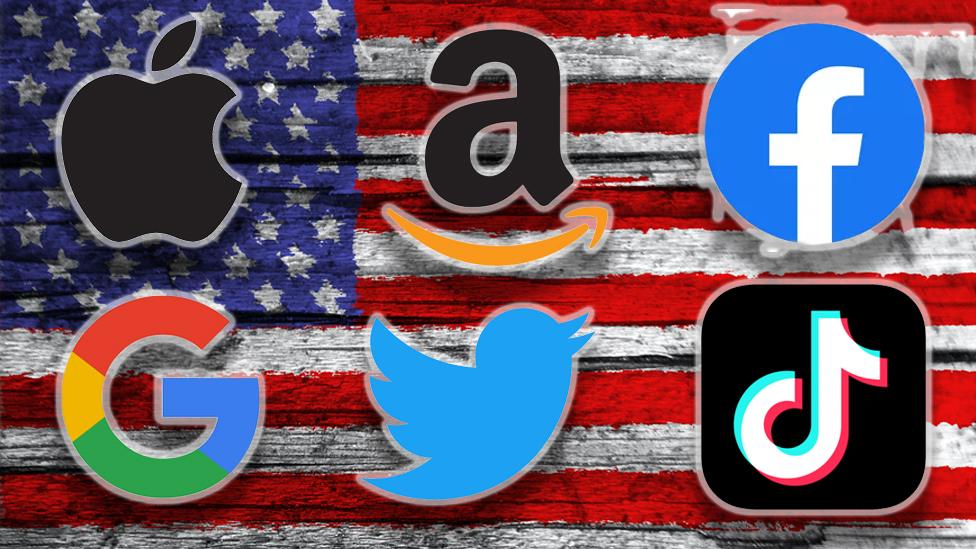Facebook: Biden aide Bill Russo attacks post-election role
- Published
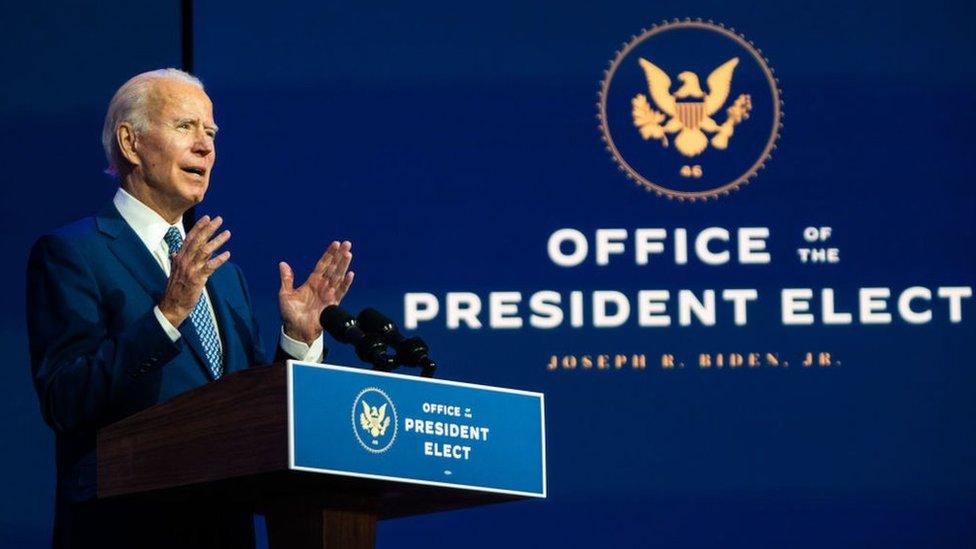
One of Joe Biden's senior aides has attacked Facebook over its handling of conspiracy theories, calls to violence and disinformation in the days following the US election.
"Our democracy is on the line. We need answers," tweeted Bill Russo, external, who is deputy press secretary to the US president-elect.
Facebook responded saying it had introduced "new products and policies".
These include a "probation" measure to tackle problems in its groups.
It involves tasking the administrators of some politically themed pages with checking that all members' posts within them follow Facebook's rules. They have been warned that failure to comply could lead to their groups being shut down.
"We built the largest third-party fact-checking network of any platform and they remain actively focused on claims about the election, including conspiracy theories," the firm added in a statement.
"We changed our products to ensure fewer people see false information and are made aware of it when they do, and highlighted reliable election information where nearly everyone on Facebook and Instagram saw that Vice President Biden was the projected winner."
Facebook has also removed a network of pages linked to President Donald Trump's ex-chief strategist Steve Bannon, external, which anti-disinformation campaigners had said were using "co-ordinated activity to spread voter fraud misinformation at scale".
The social network has also frozen Mr Bannon's personal page, preventing him from posting further content, according to the Washington Post, external.

Twitter banned Steve Bannon but he still has a live Facebook account
But Mr Russo said it should have gone further.
"Steve Bannon literally called for the beheading of FBI director Wray and [infectious disease expert] Dr Fauci in a video on November 3," he wrote, external.
"It was live on Facebook for 10 hours before it was removed after a journalist inquired about the video.
"Bannon? His page is still live on Facebook."
Twitter suspended Mr Bannon last week.
Other complaints by Mr Russo included that Facebook had:
"actively promoted" sharing of President Trump's unsupported claims about a "stolen election" and "fake votes". By contrast, he said Twitter had disabled such sharing on its platform
used a "woefully ineffective" label to flag concerns about a live-streamed press conference by White House spokeswoman Kayleigh McEnany. He noted that TV networks including Fox News had cut away from it after she had claimed Democrats were "welcoming illegal voting"
been too slow to remove posts that promoted insurrection and violence as a response to the election
Allow X content?
This article contains content provided by X. We ask for your permission before anything is loaded, as they may be using cookies and other technologies. You may want to read X’s cookie policy, external and privacy policy, external before accepting. To view this content choose ‘accept and continue’.
'Cesspool of disinformation'
Mr Russo's comments point to Facebook facing further scrutiny over the months ahead.
In December, Mr Biden told the New York Times, external: "I've never been a fan of Facebook, as you probably know. I've never been a big Zuckerberg fan. I think he's a real problem."
Mr Biden went on to suggest Facebook should lose legal protections that prevent it being sued for "propagating falsehoods they know to be false".
Ben Rhodes - who was the US deputy national security adviser when Mr Biden was vice-president to Barack Obama, and has been tipped to return in the next administration - has also criticised the social network.
"The fact that the leading source of information in America is a profit algorithm-driven cesspool of disinformation and hate speech has to be addressed through regulation," he tweeted, external.
Mr Zuckerberg is likely to face questions about all this next week when he testifies to Senate about Facebook's handling of the election, external.
Clegg connection
Mr Zuckerberg has previously benefited from Facebook board member Peter Thiel's close relationship with President Trump, including being invited to a private dinner at the White House attended by the three men in November.
There has been some speculation he might now turn to Sir Nick Clegg, Facebook's head of global affairs, for similar help.
In his former role as the UK's deputy prime minister, Sir Nick met with Mr Biden many times, and after quitting politics interviewed the US politician on his personal podcast, external.
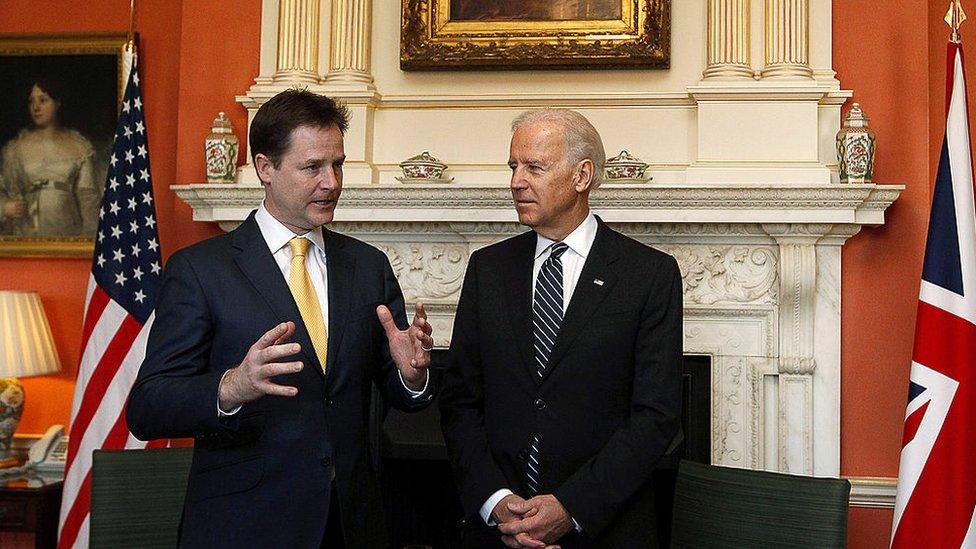
President-elect Joe Biden and Nick Clegg have met many times
"They did get on well and had a very constructive relationship," someone who worked with Sir Nick in government, who asked not to be identified, told the BBC.
"The fact that he knows him obviously gives [Facebook] a start, but I couldn't say anything about what the Biden administration now thinks."
Another possible point of contact would be Jessica Hertz, formerly one of Facebook's senior lawyers, who joined the Biden campaign in September.
The Guardian has also previously reported that Facebook uses lobbyists include a former assistant to Mr Biden, external among others with connections to the Democrats.
But one tech industry watcher suggested one of the biggest things Facebook had going in its favour was that Mr Biden faced having a House of Representatives with a smaller Democratic majority, and a possible Republican-led Senate.
"Facebook could come under real pressure to make changes, in part because Twitter has been much more interventionist,," said Stephanie Hare, who has authored a forthcoming book about technology ethics.
"But that might not come via legal action - because of the political situation - but rather via giving statements to the press and playing the tech companies off against each other."
- Published6 November 2020

- Published30 October 2020
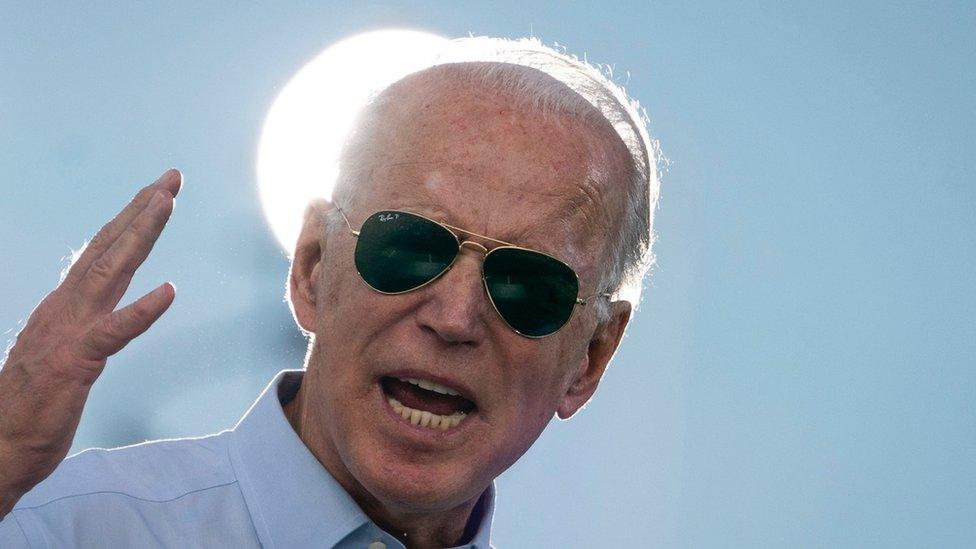
- Published28 October 2020
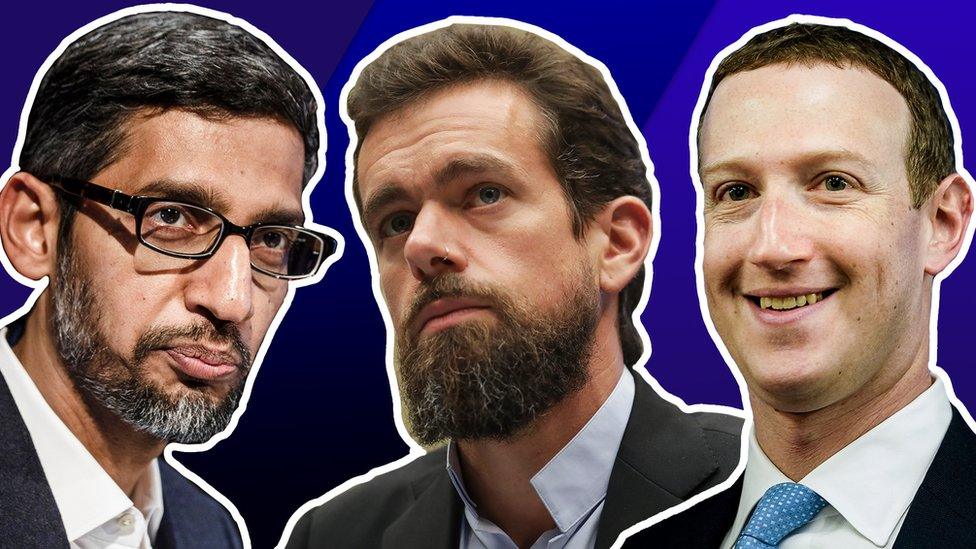
- Published7 October 2020
